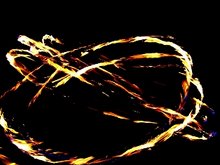Zartusht (Haven and Hell)
Zartusht’s creed has no metaphysics in it. It bears nothing outside the limits of nature and he never spoke of the abnormal or of the supernormal. The elements he speaks of existed in reality although they were tied to a higher world. The atmosphere that can be felt is higher than the environment we exist in and yet somehow it is tied to this environment. This ambience comes from condition of herd life three thousand years ago. Interestingly, the more this environment expands its atmosphere also expands like marks on a balloon. They never leave this atmosphere and they are always tied to the realm of thoughts as they expand. Wisdom, knowledge, choice, good thoughts, truth, world order, natural law, power of the will, realm of power of God, creator… realm of song, home of lies… all are comprehensible terms. But the wisdom that was used along the Amu Daria three thousand years ago was different from the one that is being used today. Primitive religions have been basically created on myths. These myths also have great importance in monotheistic religions. But zartusht’s creed knows no myth. Mysterious realms and ambience prevail in mythology. Amazing events that are beyond human capability are wrought through the power of Gods in these myths. In monotheism, we see miracles. Moses separates the sees, Jesus breaths life into the dead and walks on water or rises to the heavens. Jonas lives within a whale… there are no such elements in the Gathas.
This very deficiency of fantasy is the most important element of zartusht’s creed which proves its pertinence to reality. The religion of early man was one of mythology and the religion of modern man has been founded on these very myths. It has taken several millennia to indoctrinate these convictions thereby making religion a metaphysical creation.
Man cannot understand religion without rites, ceremonies, fantasy and imagination. This is why zartusht’s creed became enshrouded in these elements through the ages to such an extend that little has been left of the original creed. The magis and the diviners had to draw man to themselves. They had to prescribe a religion for man that bore fantasy, metaphysics, myths, dreams and images to such an extent that they could no longer be recognized.
Whenever a society is able to add to its good thinkers and to its humanitarians it will know less evil. One can not live among evil thinkers in happiness where there is corruption. The very leaders of such society know no happiness either. No revolution can bring man kind true moral and spiritual change without the enhancement of the real life of the masses. Zartusht advocates activity, struggle with oppressors and liars deceivers and the support of the needy and of the weak with internal and moral change that can bring man wisdom. This is the most realistic and pragmatic plan whose continuation can bring man betterment of life. Likewise, zartusht speaks indirectly of the other life in order not to destroy hope for man. He creates no market for the trade of religious intermediaries. There is no need for intermediaries to attain haven and escape hell. He leaves no room for such merchants. Each man is to set on his path through free will and hard work. The creed of zartusht knows no trade with God. Yet man has not yet reached that level of maturity to rid himself of centuries of indoctrination. Most people are still caught in the embrace of fantasy. Almost all people are still caught in the throes of emotional and inherited motivations. Objective religions cannot thrive in such an environment. It will take a long time for this to be brought about and for the intermediaries of religion to be destroyed. At this point dealing and bargaining with paradise and hell will be stopped.

